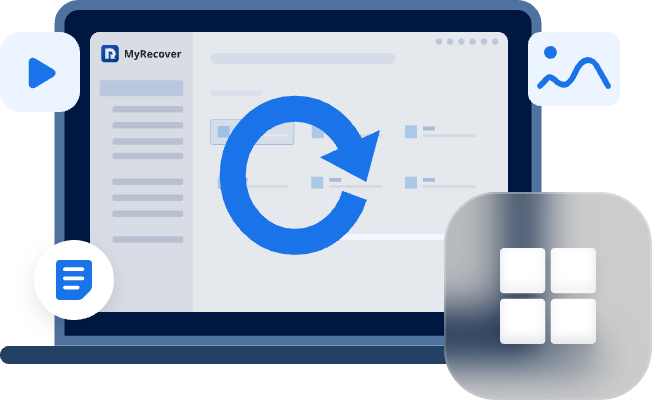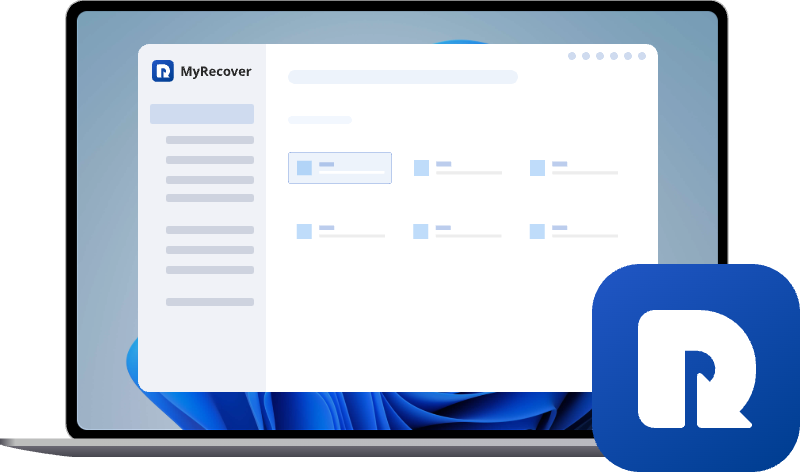Buffalo External Hard Drive Data Recovery – MyRecover
Find out how to recover data from Buffalo external hard drive using trusted tools and simple steps. Our guide explains recovery options, tips, and precautions to safely restore your photos, videos, or documents from Buffalo drives with ease.
Introduction to Buffalo External Hard Drives
Buffalo external hard drives are widely known for their reliability, large storage capacities, and user-friendly features. They’re a go-to solution for people who need to store massive amounts of photos, videos, work files, and backups. But just like any digital storage device, these drives are not immune to data loss. When disaster strikes, it’s essential to have a reliable way to get your precious files back.
Why Data Loss Happens on Buffalo External Hard Drives
Ever wondered why your files suddenly disappear? Let’s break it down.
Accidental Deletion or Formatting
It’s surprisingly easy to accidentally delete important files or even format the entire drive. One wrong click and poof—your data is gone.
File System Errors or Corruption
Power outages, sudden removal of the drive, or malware can corrupt the file system, making files unreadable.
Physical Damage or Drive Failure
Even though Buffalo drives are durable, they can still suffer physical damage or wear out over time. Dropping the drive or exposing it to extreme temperatures can lead to data loss.
Can I Recover Data from Buffalo External Hard Drive?
How to rescue data from a dead Buffalo External Hard Drive?
I bought a 250GB Buffalo external hard drive three years ago, and it just died. When I plug in my Buffalo HD the power supply works as well as the fan, but the hard drive inside is broken, apparently (although a computer detects that it has been plugged in via the USB, the data does not initialize and no icon appears on the desktop. Furthermore, the data on the disk drive can't be accessed in any other roundabout way that I've tried).
The data on this broken drive is extremely valuable. I appreciate anyone's comments/thoughts/or insights on this.
- Question from Buffalo Forums
Data loss on Buffalo external hard drives is not the end of the road. Whether files were deleted accidentally, a drive was formatted, or the system became corrupted, you can often recover your data with the right tools—like MyRecover. The key is acting quickly and avoiding actions that might overwrite the lost data.
The Ultimate Buffalo External Hard Drive Data Recovery Tool - MyRecover
This is where MyRecover comes in. Designed to be powerful yet easy to use, it’s an all-in-one solution for Buffalo external hard drive recovery. MyRecover is a trusted data recovery software that helps you retrieve deleted, formatted, or lost files from external hard drives, USB drives, and even internal storage.
Why Choose MyRecover for Buffalo External Hard Drives
Here’s why MyRecover is a game-changer:
Quick and Easy Recovery Process
No need to be a tech expert—MyRecover’s simple interface walks you through every step.
High Success Rate and Reliability
Thanks to advanced scanning algorithms, MyRecover boasts an impressive recovery rate, even for severely corrupted drives.
Support for Multiple File Types
Whether it’s photos, videos, documents, or archives, MyRecover supports over 1000+ file types.
Step-by-Step Guide to Recover Data from Buffalo External Hard Drive Using MyRecover
Let’s walk through how you can recover your files with MyRecover:
Step 1: Download and Install MyRecover
Go to MyRecover’s official website, download the installer, and follow the on-screen instructions to install it on your computer.
Step 2: Connect Your Buffalo External Hard Drive
Plug in your Buffalo drive and ensure it’s detected by your computer.
Step 3: Scan Your Drive for Lost Data
Launch MyRecover, select your Buffalo drive from the list, and start the scan. The software will dig deep to find recoverable files.
Step 4: Preview and Recover Your Files
Once the scan completes, preview the files you want to restore and click Recover to save them to a safe location.
- ★ Tips to Maximize Data Recovery Success
- Want to increase your chances of getting your files back? Here’s what you should do:
- Stop Using the Drive Immediately: Using the drive can overwrite lost data, making recovery harder or even impossible.
- Save Recovered Data to a Different Location: Always recover your files to a new storage device or folder to prevent overwriting existing data.
- Perform Regular Backups: Use cloud storage or another external drive to back up your data regularly.
Preventing Future Data Loss on Buffalo External Hard Drives
As the saying goes, prevention is better than cure.
Use Reliable Antivirus Protection
Malware can corrupt files and compromise your drive. Always use trusted antivirus software.
Safely Eject Drives
Never pull out your drive while it’s still in use—always eject it properly to avoid file system errors.
Keep Firmware and Software Updated
Regular updates help patch vulnerabilities and improve drive performance.
Conclusion
Losing data on your Buffalo external hard drive can feel like a nightmare. But with MyRecover, you can turn that nightmare into a success story. Its powerful features, ease of use, and high success rate make it the ideal choice for recovering lost or deleted files. Combine this with good data habits—like regular backups and careful handling—and you’ll be well-prepared for the future.
FAQs
1. Can MyRecover recover files from a physically damaged Buffalo external hard drive?
MyRecover works best for logical issues like accidental deletion or formatting. For severe physical damage, you may need a professional data recovery service.
2. How long does a scan with MyRecover take?
It depends on the drive size and the type of scan. Quick scans may take minutes, while deep scans can take an hour or more.
4. Can I preview files before recovering them with MyRecover?
Absolutely. MyRecover lets you preview recoverable files so you can choose what to restore.
5. Is MyRecover safe to use on my Buffalo external hard drive?
Yes, MyRecover uses read-only scanning technology, meaning it won’t damage your existing data during recovery.


